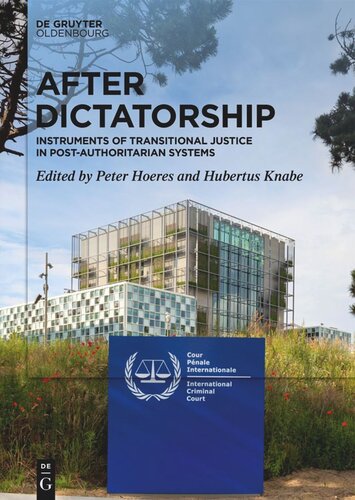

Most ebook files are in PDF format, so you can easily read them using various software such as Foxit Reader or directly on the Google Chrome browser.
Some ebook files are released by publishers in other formats such as .awz, .mobi, .epub, .fb2, etc. You may need to install specific software to read these formats on mobile/PC, such as Calibre.
Please read the tutorial at this link: https://ebookbell.com/faq
We offer FREE conversion to the popular formats you request; however, this may take some time. Therefore, right after payment, please email us, and we will try to provide the service as quickly as possible.
For some exceptional file formats or broken links (if any), please refrain from opening any disputes. Instead, email us first, and we will try to assist within a maximum of 6 hours.
EbookBell Team

4.7
76 reviewsOpen Access
Numerous studies concerning transitional justice exist. However, comparatively speaking, the effects actually achieved by measures for coming to terms with dictatorships have seldom been investigated. There is an even greater lack of transnational analyses.This volume contributes to closing this gap in research. To this end, it analyses processes of coming to terms with the past in seven countries with different experiences of violence and dictatorship. Experts have drawn up detailed studies on transitional justice in Albania, Argentina, Ethiopia, Chile, Rwanda, South Africa and Uruguay. Their analyses constitute the empirical material for a comparative study of the impact of measures introduced within the context of transitional justice.
It becomes clear that there is no sure formula for dealing with dictatorships. Successes and deficits alike can be observed in relation to the individual instruments of transitional justice – from criminal prosecution to victim compensation. Nevertheless, the South American states perform much better than those on the African continent. This depends less on the instruments used than on political and social factors. Consequently, strategies of transitional justice should focus more closely on these contextual factors.